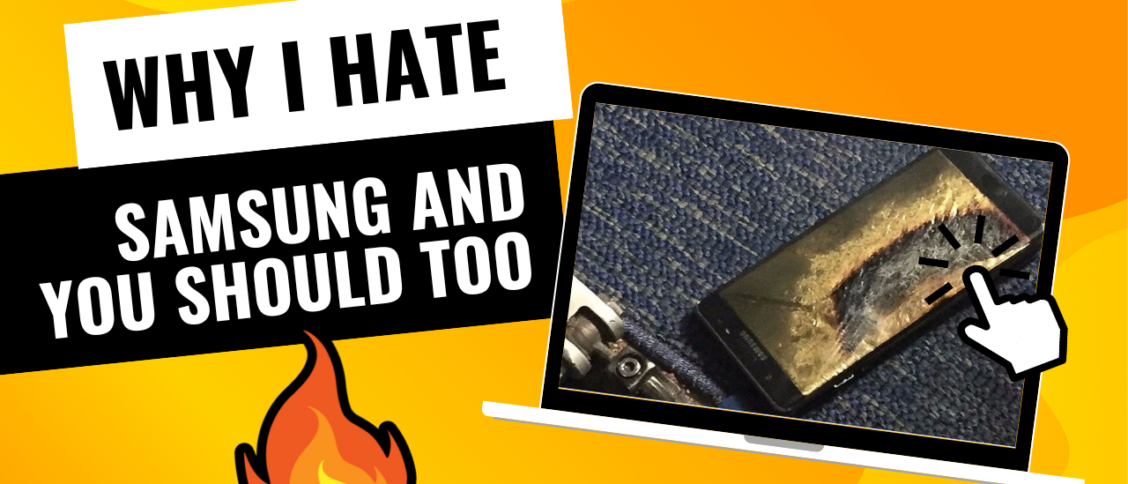Hello, my techies today. I’m going to be talking about why I’m not a fan of Samsung phones, and why you might want to think twice about them too.
The first thing that bugs me is the overload of apps. Samsung stuffs about 22 apps onto your phone, a lot of which you don’t really need.

You got Google play, but Samsung also throws in its own galaxy store. So, you stuck with two app stores. On one device, you got Google assistant. Well, Samsung also gives you Bixby.
You might like using your go-to browser, like Chrome or Brave, but Samsung insists on adding its own Samsung Internet. The same story with Google Pay and Samsung Wallet. The list keeps going, adding up to around 22 pre-installed apps, most of which are just taking up space. To make things worse, your carrier also adds its own apps. and keep in mind, we’re not talking about cheap phones here, but devices that can cost up to $2,000, yet they’re crammed with unnecessary apps.
This brings me to my next point. You can’t get rid of most of these extra apps. Sure, they tell you can disable them, but that’s not what I’m after. I want to totally remove Bixby, Samsung Wallet, Samsung Kids, and all the other apps I don’t use. If I’m shelling out $1,000 or $2,000 on a phone, I should be able to uninstall any app I don’t want. By forcing these apps on me and not letting me remove them, it makes a high-end phone feel like a cheap one.

Samsung often advertises their top-tier phones as having Snapdragon processors, but they often come with Exynos chips instead. They usually sell these phones with the less powerful Exynos chips in places like Asia, Europe, and the Middle East. Meanwhile, the models with the stronger Snapdragon chips are mainly sold in the Americas.

Lastly, the durability of many Samsung phones is often questionable. Remember back in 2016, when Samsung had to recall 2.5 million Galaxy Note 7 phones because they were exploding and catching fire? They put a lot of effort into marketing to try and change this image. However, I have a Samsung Fold 4, a foldable phone, which stopped working in less than a year. Luckily, Samsung honored their warranty. My wife also had a Samsung Flip phone that broke down around the same time, just before the one-year mark. Thankfully, it was still under warranty. Samsung fixed and returned our phones. But it does make you wonder about the quality of a phone that costs $2,000.

So, if you’re looking for a Samsung alternative, I’d say, just checking out other phones, maybe a OnePlus phone. The reason being, Samsung phones tend to come with their fair share of issues. For example, they come preloaded with 22 system apps. Google apps, and carrier apps, many of which. Which you can’t uninstall, but only disable. The purpose of this disabling feature is unclear. But it’s definitely not the same as totally removing the app, which is what most people would prefer.
Plus, there’s the issue of inconsistent quality. With Samsung, you’re never quite sure if you’re going to get a phone with a Snapdragon chip or a Exynos chip, the latter of which, in my opinion, is not as good. It’s a lot of uncertainty and potential hassle for a phone from a company whose reputation is a bit shaky.
So, why not think about an alternative phone manufacturer? At least with them, you know exactly what you’re getting. The apps that come with the phone are clear and upfront, and the cost is usually lower. With Samsung, you’re basically paying extra for the brand name, but the quality isn’t always guaranteed.
Also, there’s the uncertainty about the chip. You’re left wondering if you’re going to get the right one. And let’s not forget the ton of system apps that you can’t uninstall, which can be super annoying.
So, to avoid all this drama and hassle, I’d recommend looking into other phone manufacturers, don’t limit yourself to one brand. This approach gives you more options and could save you a lot of trouble in the long run.





